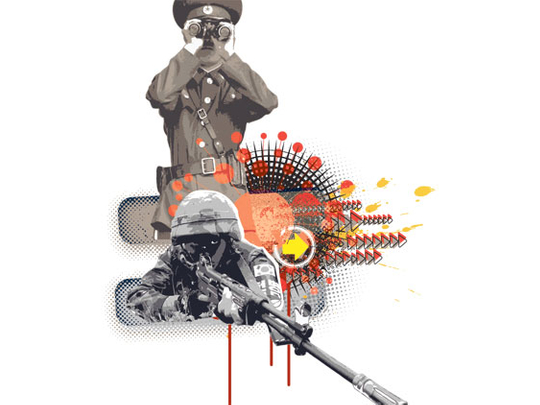
Even by the standards of the military clashes that have become a perennial feature of life on the Korean peninsula, the sinking of a South Korean warship by a North Korean mini-submarine marks an alarming, and potentially catastrophic, escalation in tensions between the two countries.
Whether the North Koreans are made to suffer the consequences of their involvement in the Cheonan disaster will depend on proving that the attack was premeditated, as opposed to being a catastrophic error of judgment. At present, western military experts are leaning to the view that the commander of the North Korean vessel panicked under pressure and launched the torpedoes without considering the consequences of his action.
"It is easy to imagine a scenario where a submarine commander believes he is about to come under attack and gives the order to fire," said a senior military intelligence officer. "Both navies are operating in a highly volatile area where the slightest wrong move by either side might be misinterpreted as a provocative act."
Unstable
But then, given the unstable nature of the North Korean regime, it is equally feasible that for some bizarre reason the attack was launched on the orders of Pyongyang.
During the 1980s, when Kim Jong-il, the North Korean leader, was in the process of negotiating his own rise to power, the North Koreans were involved in a series of terrorist attacks on South Korea, which were undertaken to demonstrate Kim's allegiance to the North Korean cause. These included a bomb attack on a South Korean delegation undertaking an official visit to Burma, as well as the bombing of the Korean Air flight.
A new succession battle is now said to be taking place in Pyongyang amid a flurry of reports that the 69-year-old Kim Jong-il is suffering from bad health. In 2008 "the Great Leader", as he is known throughout the country, was reported to have suffered a cerebral haemorrhage and lost the use of some of his limbs. The country's reclusive dictator is said to have made a partial recovery, to the extent that earlier this month he made an official visit to China, where he is understood to have discussed North Korea's economic plight, as well as Chinese approval for his plans to hand power over to Kim Jong-un, his third and youngest son.
But Kim Jong-il's plans for the succession have attracted opposition, not least from Chang Sung-taek, the dictator's brother-in-law, who harbours ambitions of his own to assume leadership.
In order to cement the younger Kim's power base and control of the army, it is possible that Pyongyang could have authorised a fresh round of attacks on South Korean targets, which resulted in the torpedo attack on the Cheonan.
Whether the Cheonan was the result of a grave military error, or a casualty of renewed political in-fighting in Pyongyang, the challenge for South Korea and its allies now is how best to respond to the provocation. Seoul has promised retaliatory measures, and is pressing the United Nations Security Council to respond following the publication of an independent report which concluded that a North Korean torpedo was responsible for the sinking of the Cheonan.
Resistance
Any attempt by the UN to punish Pyongyang for its role in the Cheonan affair would inevitably meet with resistance from China, the regime's regional protector.
For years, China has advocated a softly-softly approach to North Korea in the vain hope that Pyongyang could be persuaded to follow China's own transition from cultish despotism to economic reform. China will now argue that tough action against North Korea could further destabilise a regime that is already suffering from economic meltdown.
This may well be the case, but if China has serious pretensions to becoming a major world power, then it needs to bring all its influence to bear on the North Korean regime to ensure that there is no recurrence of the Cheonan disaster. China is the only country that can exercise real influence on the Kim clan.
Beijing's recent decision to back a new UN resolution for sanctions against Iran demonstrates that China is slowly waking up to the global responsibilities that go with being one of the world's leading powers. Now it must do the same with North Korea in order to prevent any escalation in hostilities.









